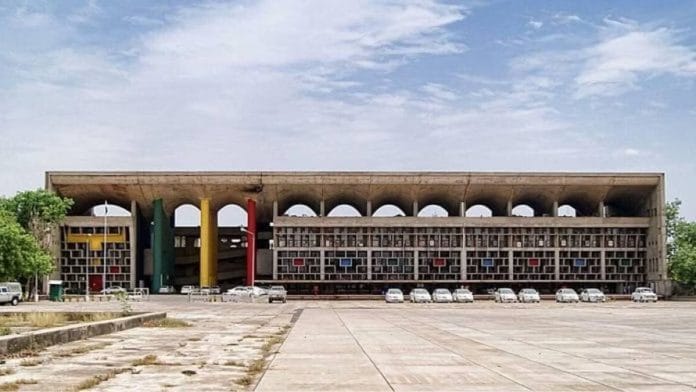Gurugram: In an important verdict to protect the rights of retired government employees, the Punjab and Haryana High Court has ruled that pension authorities cannot arbitrarily recover alleged excess payments without explicit consent from the pensioner.
In a petition where it was alleged that the Punjab National Bank debited Rs 6.63 lakh from the bank account of a Haryana civil pensioner, a former executive officer at the Municipal Corporation, Kaithal, citing “excess pension”, the Punjab and Haryana High Court has directed the Reserve Bank of India to issue instructions to all agency banks stipulating that no recovery of excess pension may be made without the pensioner’s knowledge, consent or prior notice, and that any such recovery must strictly conform to the governing service rules.
In his detailed 32-page order delivered on 4 November (order made available online only on Tuesday), Justice Harpreet Singh Brar set aside the recovery of Rs 6,63,688 from the pension account of Sajjan Kumar Goyal, with a direction to refund the amount with 6% annual interest.
Also read: Indians can’t invest retirement funds internationally. Govt should study the viability
What was the case
Goyal retired in February 2016 and was issued a Pension Payment Order in August 2016. In 2019, the authorities unilaterally revised his pension under new rules, but on 31 March, 2021, Rs 6,63,688 was suddenly deducted from his personal bank account without any prior notice, show-cause, or opportunity for hearing.
The recovery was later justified by authorities as having been made on account of a “clerical error”, resulting in the payment of two Dearness Allowances—one on revised pension and another on unrevised pension—from April 2019 to February 2021. The excess payment was for periods beyond five years preceding the order of recovery.
High court’s observations
Justice Brar said that both the Punjab Civil Services Rules and Haryana Civil Services (Pension) Rules prohibit recovery from sanctioned pension without the consent of the pensioner.
The court pointed out that recovery is allowed only when the pensioner furnishes an undertaking in writing regarding the refund of the excess amount, which was not done in this case.
Recovery from retired employees is impermissible in law, it said, citing a landmark judgment of the Supreme Court in State of Punjab v. Rafiq Masih.
The high court observed that as per court records, the petitioner was not served any notice before the amount was debited from his account. Nor was he granted an opportunity for hearing before the recovery, thus rendering the entire act of the bank violative of the principles of natural justice.
The court observed that a pensioner often entirely depends on his/her monthly pension to meet their immediate household and medical expenses and any abrupt recovery causes immediate hardship, thus undermining the very object of providing the pension.
Justice Brar added: “Arbitrary or uncommunicated recoveries go against the spirit of a welfare administration and demonstrate a lack of humane consideration.” Such actions, he said, erode confidence in the fairness and credibility of government departments.
The court ordered the respondent authorities to refund the recovered amount along with 6% per annum interest from the date of filing the petition till the date of actual payment, within three months.
The court ordered that the the Reserve Bank of India should direct all agency banks that recovery of excess amount in respect of pension from government employees shall not be made without the knowledge and consent of the pensioner concerned or without prior notice.
(Edited by Viny Mishra)
Also read: NPS vs UPS: Which Pension Scheme Offers Better Benefits for the Employees in 2025?






